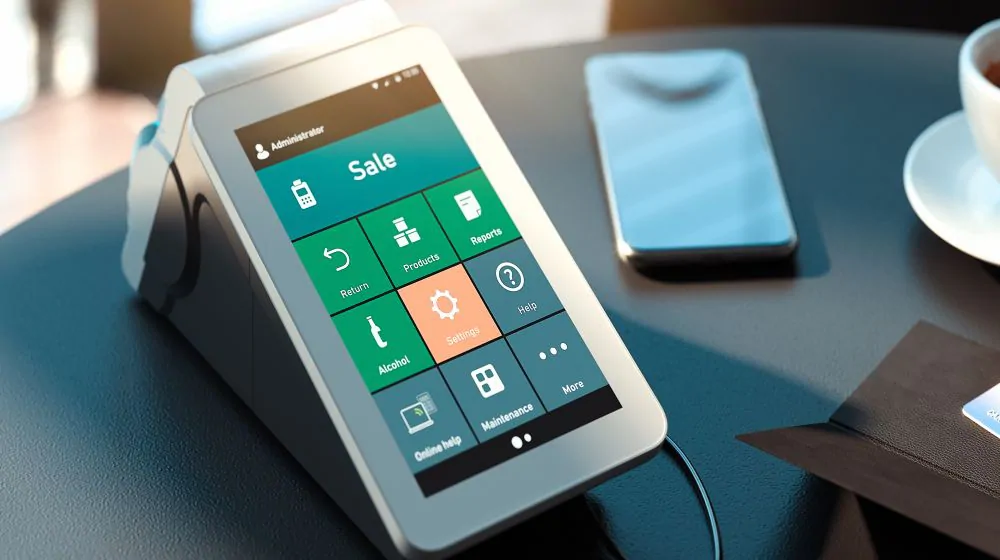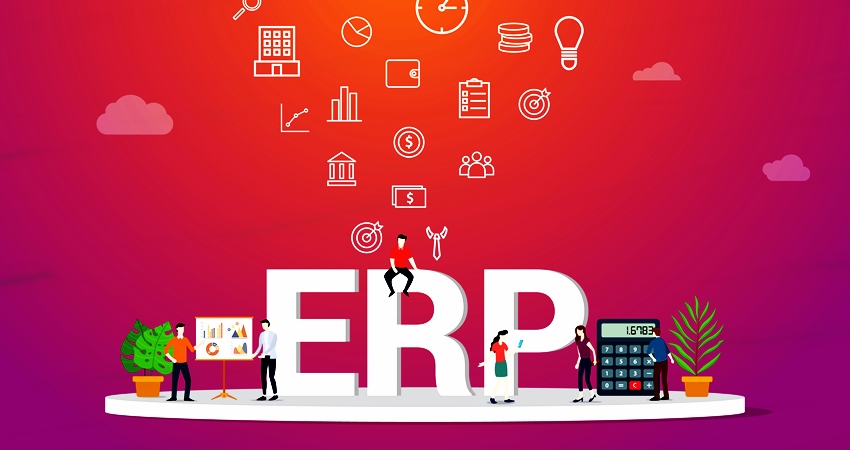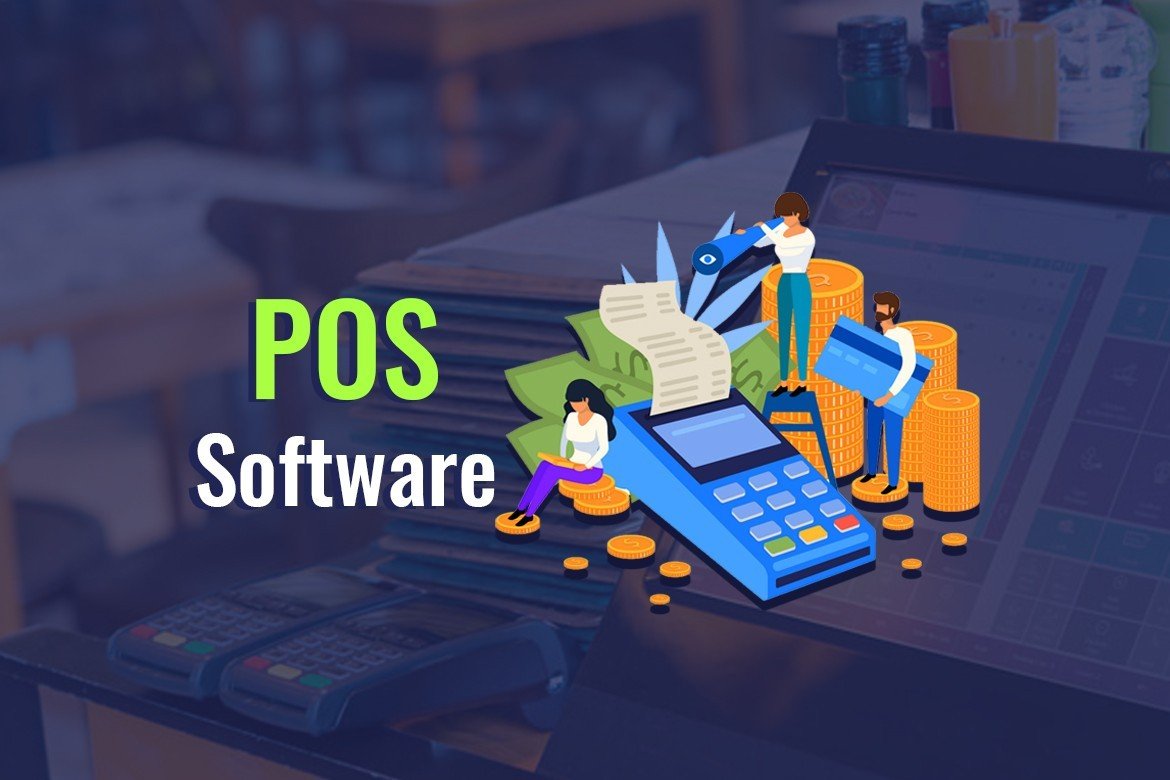What Is A Point Of Sale System?
Retail and Restaurants are main sources of our routine purchases and in case your store is only accepting cash, you end up being short-changing yourself. Cash is very limited these days as the buzz is on digital wallets and approximately 95% of all transactions happen via a Restaurant or Retail POS system. These devices process customer purchases, tackle payments, and document sales.
A good Retail POS system assists you in achieving a lot with new technologies such as handling inventory & customers, empowering your staff, monitoring purchases, and spot & reward regular/loyal customers. Everyone is aware of these advantages. But, to have an expandable POS system, it is critical to find the right POS System Development Company that has knowledgeable and experienced developers with good understanding of your industry vertical.
A Guide to POS Features
There happen to be several aspects you should look into while researching about the company, but the first thing to consider is whether to go for an old-fashioned POS or mobile POS.
Traditional POS System: The elements of this device include a stationary touch-screen computer display, credit card reader, and cash drawer. Extra pieces might have printers and scanners.
Mobile POS System (mPOS): This is generally a tablet configuration which is used both in stationary and mobile apps. It is useful with or in lieu of the traditional stationary point-of-sales systems.
It is tough to select a traditional POS or mPOS but you are left with no choice. In this matter, look into other factors that could affect your business:
4 Questions to ponder over prior to Buying a POS
Do I Require The Fastest Processor In The Market?
Having a good processor speed is no guarantee for better performance. Today things have changed as technology has touched a point of diminishing returns. The variation in a mid-tier processor and a top-tier processor in a retail or restaurant hardware is hardly a prominent matter. The mid-tier can be sufficient for the majority of businesses.
Does My POS Have Any Kind Of Physical Longevity?
The criticality of durability is quite apparent but it is not easy to tell these days the longevity of a piece of hardware. Every hardware supplier boasts about the durability of their products. When a POS hardware vendor says their product is long-lasting then you have to ask about:
Spill and drip
Dust, lint, and debris
Surge and lightning
Electrostatic discharge
Impact, drop, vibration, and shock
Environmental: thermal and humidity
Electromagnetic compatibility: radiated immunity and radiated emissions
Is it a Must for Point-Of-Sale Hardware to be Built Specifically For A Retail, Restaurant, Or Any Other Environment?
Certain suppliers utilize the same hardware for every business hardware setups. However, you should know the differences to make a good decision for your business.
You can begin to see decision making prospects opening up when you imagine the manners in which your business will utilize a POS system. Some important questions to consider are:
Is any hardware proprietary or is it possible to own it?
Is the system feature ideal for your business needs of the future?
How much does the software cost?
How much money to be kept apart for hidden charges?
Is there a requirement to sign a contract?
How to select the apt POS System in terms of Size, Scale & Space?
In case your business location is restricted in space then you should consider the tablet POS; their configuration is easy and size is tiny vis a vis traditional POS systems. It gives you adequate foot space in your store. The mPOS systems are attractive and ideal for closed spaces as they provide a flexible solution. These can be utilized in mobile and stationary setups. But, if you are going to function in a bigger retail space with several checkouts, you can go for a traditional point-of-sale system. These are huge and come with a package of solutions that carry critical peripherals usually used at a checkout.
5 Excellent POS Systems 2019:
- Verifone
- Clover
- Ingenico
- First Data
- Equinox
POS Software Elements
Cloud-Based (Saas) or Software-as-a-Service happens to be a system that can be accessed and assisted via the internet. If the internet goes down, most POS systems can monitor sales and sync once the connection comes back.
On-Premise is the one that requires a business to purchase one or more licenses directly from the software; which can be installed on the servers or computer system. In case you have a big organization to track then it might turn very inconvenient to update and maintain the software by yourself. You should look at taking the help of a dedicated IT professional.
POS Hardware Components
This is a list of the rudimentary hardware elements needed to assist any POS system
- Touchscreen Monitor
- Barcode Scanner
- Cash Drawer
- Pole Display
- Magnetic stripe reader
- Receipt printer
How Does POS Help You?
Data is of paramount significance currently when it comes to decision making. Earlier, mere conjectures were the real source. This implies that you require all data you get from anyone who communicates with your business. Data such as customer buying/return history, sales detailed by item, reports on stock inventory, and monthly/yearly/seasonal sales reports. Devoid of these, your business growth can go for a toss. Other beneficial reasons that come to mind are:
- Expedite report generation
- Cuts down inventory overhead
- Quicken busy checkout lines
- Superior services for customers
- Offer prompt inventory data to vendors
- Maximize traffic online & offline in your store
- Time saved on back-office inventory operations
9 Essential Aspects In Your Point-Of-Sale System
Integration: Your POS system must possess a configuration to be merged with other segments. For example, accounting, time & attendance, inventory management, loyalty & gift cards, etc. If your system is integrated then room for errors and discrepancies will be very frugal.
Employee Management: This tool is basically for your employees logging in and out post their shift. This even helps in dealing with employees’ schedules and payroll.
Inventory Management: Inventory thinning is an issue all businesses confront. You should deal with this matter straight away by handling the on-site inventory quantity. This inventory management provides you some room for your stock at every time.
Customer Management: Find and rapidly spike the number of good consumers with this feature. This procedure will gather data on your customers’ past purchases and thereby permitting you to find out your most useful customers through their spending pattern. This additional clarity transparency can be accessed with a POS system.
Sales Reporting & Analytics: Apart from monitoring the quantity of your selling products this system even reflects the revenue you are earning on each product. Understanding the lucrative items in your business permits you to devote your time and effort judiciously.
Mobile/Tablet Access: The mobile & tablet POS access takes immobility out of your life. You can obtain access to your POS system from anywhere.
Streamlined Purchasing: This is an important feature that cannot be ignored. The process involved in a company to get goods and services can affect your business’ profit margin, cost, and entire success.
Customer Relation Management: The system keeps the portfolio of frequent customers which permits the business to get particulars such as a customer’s previous purchase, time they were originally included etc. Hence, improving the customer experience by understanding the customer personally.
Stock Management: This is time saving as critical information is being tracked properly. You easily handle bulk, understand top sellers, establish order triggers for sales, scan items anywhere etc. This aspect cuts down the time spent on physically ordering and computing your supply levels.
Extra POS Features:
Quick & Precise Billing: The manual steps involved in carrying out a transaction will come down drastically and hence improving employee productivity and performance.
Safety: Every POS system would follow the Payment Card Industry Data Security Standard (PCI DSS). This assists in safeguarding the critical customer data such as CC numbers and phone numbers.
Potent Reporting: It assists you in getting to know what is happening in each department of your business minus overseeing each department. Robust reporting permits you to identify patterns, view where the problem is, and where the prospect of growth lies. Such detailed info allows you to observe your inventory for an SKU-level view of your sales.
Quicken Growth with Multi-Unit Management: Having a sole franchise can aid you in seeing the requirement to save on costs and opt for a medium with lesser features. The ideal thing to do is to opt for a franchise point-of-sale system that enables you to handle several units through a single dashboard. It can be easier for you to expand when your system is equipped with multi-unit handling abilities permitting you to deal with various stores properly.
What is the cost of A POS System?
Pricing Prototypes
Pay-Per-Month: This happens to be the most sought after system in the market at present. Prices differ as per the brand you opt for and how the initial discussions pan out. The base pricing will be fixed according to per user or Register. The variations stand out when you have a requirement for only one register or multiple, and the number of employees working. The present pricing model in the market differs from $35-$40 for minor retail stores and for big businesses $50 would be the starting rate.
Pay All At Once: This is not utilized commonly as it entails huge upfront costs.
Hidden Charges
All industries have some covert fees involved when it comes to making a POS system. You should ask questions regarding your prospective establishment and then get an understanding of all costs.
Hardware Expense: Ensure every hardware expenses are added in your estimate. There might be sudden surprises like believing that you require one PC or Tablet for a register however you might as well have to purchase a whole kit to cater to it. This is the point where pricing models differ marginally as software companies regularly bring these kits where the prices differ.
Customer Service Charges: Each vendor tackles their customer service independently. You might see certain companies providing free services including free training and live chat; On the other hand, certain vendors would levy extra services. So, keep track of those vendors, who can be beneficial to your business, and those extra costs to the total estimate.
Credit Card Charges: Keep in mind the percentage of each solution charge as that variable would lead to extra fees. It might be a time-consuming affair to set a detailed estimate to begin with but you have to be ready and precise on the basic estimate.
Extra Features: It is better to remember that any feature you wish to include in your POS system might entail a hidden cost. Usual norm with companies is to levy extra reporting features. Monitor all the features included to be clear about your estimated costs.
While building a POS system, consider these above-mentioned hidden costs to assist you in selecting the apt POS Software Development company that is perfect for your budget, business requirements, and needs from the system.
What you can anticipate in terms of payment?
You should be prepared to pay something in the range of 2% – 3% of your yearly revenue and between 12% – 18% of that expense for annual maintenance and upgrades. If you are a small to medium retail store, then you can avail more free alternatives in the markets. Eventually, identifying the predicted costs for a POS system needs time, research, and a good understanding of what your business requires at present and going forward. With technical evolution, possessing a POS system attached to your business is important to encourage growth.
It is better to appoint a team of skillful POS Software Developers with very good understanding of some of the POS systems in the market you are trying to study in detail.




